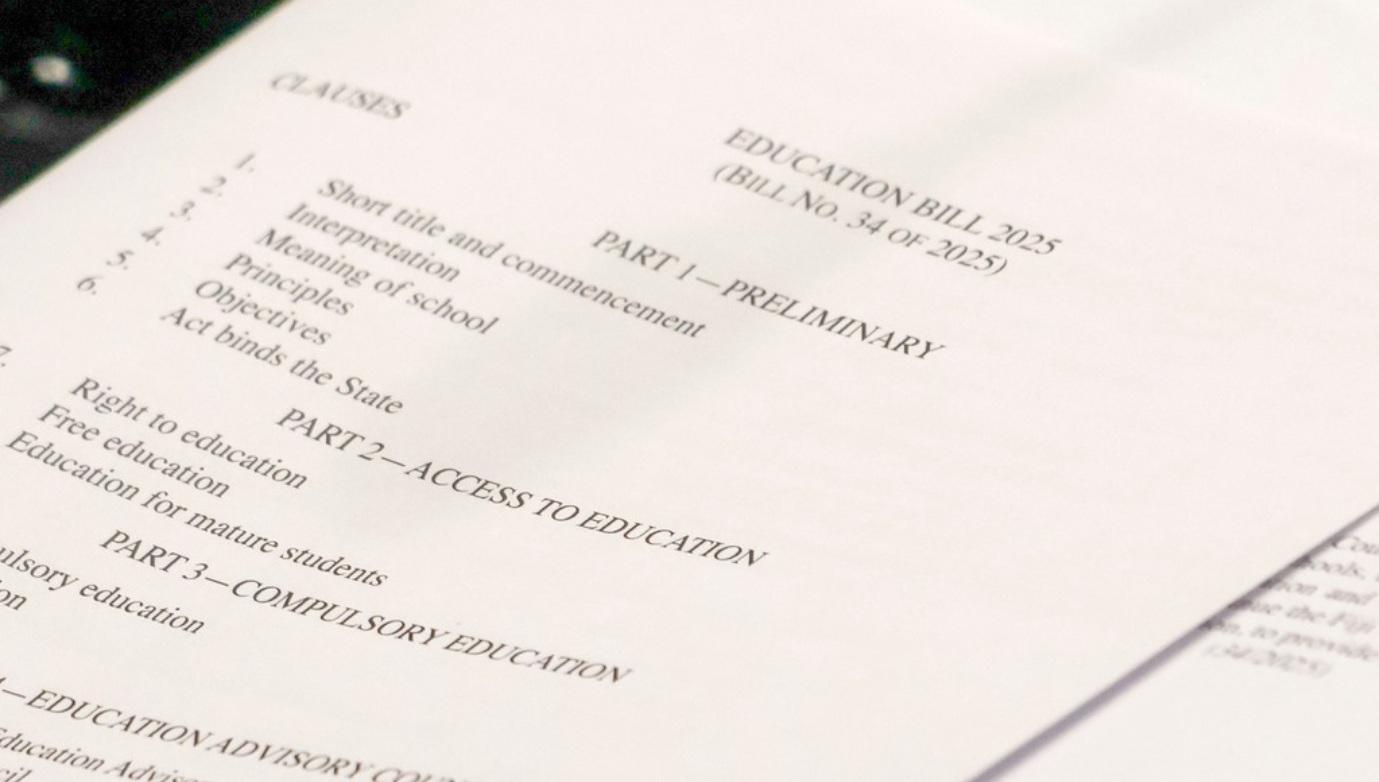The Minister for Education Aseri Radrodro yesterday tabled the Education Bill 2025, a proposed piece of legislation that seeks to overhaul Fiji’s pre-tertiary and higher education framework, replacing the Education Act 1966 and two other related laws.
The Bill was developed following a comprehensive review launched in March 2025 by a committee supported by the Fiji Law Reform Commission, with funding from the Global Partnership for Education and UNICEF.
Under the proposed law, education will be treated as a fundamental right. Every person will have access to early childhood, primary, secondary, and higher education, with free primary education guaranteed and free secondary and higher education provided when resources allow.
Part 3 of the Bill introduces compulsory education, requiring all children within a prescribed age to attend school. Parents who fail to comply may face penalties, while school heads are mandated to report truancy.
The Bill also establishes two major national bodies — the Education Advisory Council and the National Curriculum and Assessment Authority — to guide policy, oversee standards, and develop curricula. “These independent bodies will strengthen accountability and ensure that education policy keeps pace with global best practices.
A key provision in the Bill is the prohibition of corporal punishment and any form of inhumane or degrading treatment of students. It mandates that schools provide counselling services and prioritise student well-being.
Financial transparency and auditing requirements for schools are also introduced, along with strict regulations for teacher registration through a new Fiji Teachers Registration Authority.
The Bill also includes provisions for mature students, home schooling, and higher education regulation.
Once passed, the new Education Act 2025 will replace three outdated laws and will be reviewed every five years to stay relevant and effective.



